Breast Cancer
Invasive breast cancer is a malignancy in which cancer cells have penetrated the basement membrane of the mammary ducts or lobular alveoli and invaded the stroma. The vast majority of invasive breast cancers are adenocarcinomas, which originate from the epithelial cells of the mammary parenchyma, especially the terminal ductal lobular units. Breast cancer accounts for 17.6% of cancer cases in the Philippines, affecting nearly 25,000 people across the archipelago in 2018. It’s estimated that the total number of breast cancer cases will nearly double by 2040. According to the Asian Breast Center, one in four Filipino women in the country have breast cancer. "Asia has one of the lowest rates of breast cancer, but the Philippines has one of the highest rates in the world," said Norman San Agustin, MD, CEO of the Asian Breast Center.
Symptoms of Breast Cancer
Diagnosed with invasive breast cancer, are you suffering from these situations?
-
Double blow to the body and mind
Diagnosed with invasive breast cancer is not only physical pain but also a struggle of the mind. Fear, helplessness, anxiety, these negative emotions are like shadows, always accompanying you.
-
Side effects and discomfort during treatment
Although chemotherapy, radiotherapy, and other treatments are effective, their side effects cannot be ignored. Nausea, vomiting, hair loss, fatigue, and other problems make you feel tortured during treatment.
-
Disease progression and complications
Invasive breast cancer may metastasize to lymph nodes or other organs, such as bones, lungs, liver, etc., causing more pain and complications.
Breast Cancer Patient Stories
At St. Stamford Modern Cancer Hospital Guangzhou, we have witnessed countless colorectal cancer patients come out of their pain and regain their self-confidence in life. The following are real cases of colorectal cancer patients in our hospital.
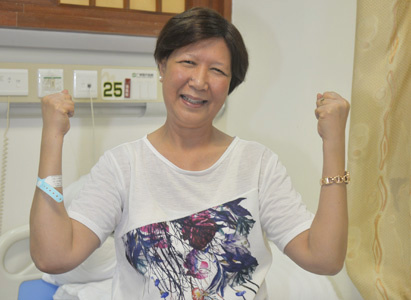 Breast Cancer
Breast Cancer- Susan Gawat
- the Philippines
Susan Gawat, a breast cancer patient, comes from the Philippines. After taking mastectomy and chemotherapy, cancercame back to her. She got i...
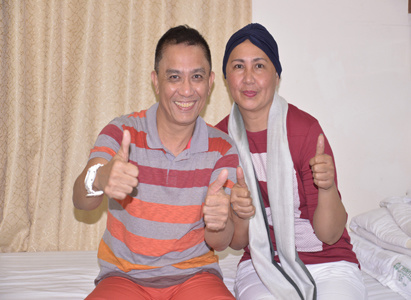 Breast Cancer
Breast Cancer- MIMIE ABUTIN
- Philippines
MIMIE ABUTIN, a breast cancer patient from the Philippines, took excision surgery and interventional therapy in Modern Cancer Hospital Guangz...
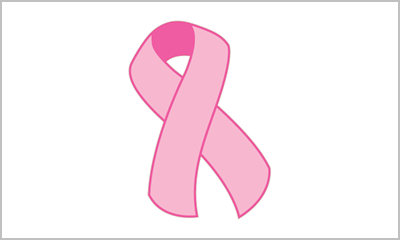 Breast Cancer
Breast Cancer- Katy
- Philippines
Katy is a 48-year-old who has been diagnosed with left breast cancer. She underwent a modified radical mastectomy with immediate reconstructi...
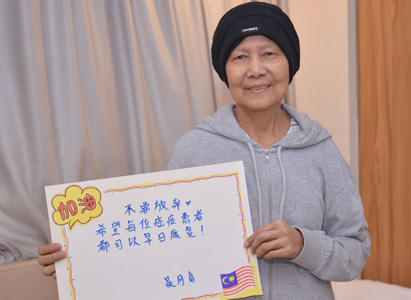 Breast Cancer
Breast Cancer- Goh Guat Imm
- Malaysia
After receiving cryotherapy and interventional therapy at St. Stamford Modern Cancer Hospital Guangzhou, Goh Guat Imm, a breast cancer patien...
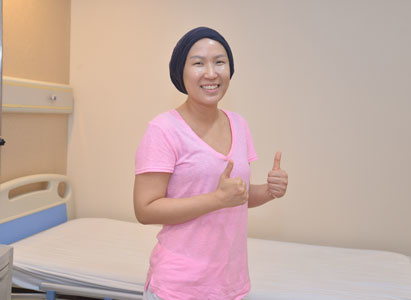 Stage III Breast Cancer
Stage III Breast Cancer- WONG SOOK KWAN
- Malaysia
Wong Sook Kwan, from Malaysia, was diagnosed as stage II breast cancer in June 2017. Before she came to St. Stamford Modern Cancer Hospital G...
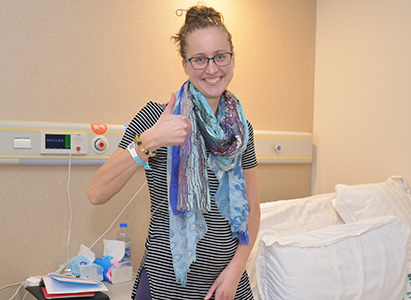 Stage IV Breast Cancer
Stage IV Breast Cancer- MICHELLE ELSIEN VAN VEEN
- Canada
Michelle comes from Canada. In 2013, she was diagnosed with breast cancer. Refusing the doctor's recommendations for chemoradiation, she unde...
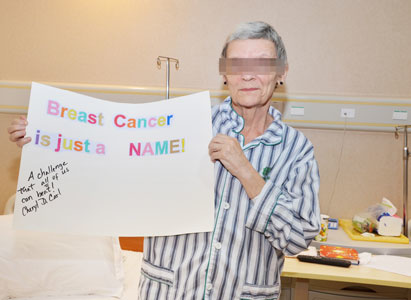 Breast Cancer
Breast Cancer- CHERYL DIANE CARL
- America
CHERYL DIANE CARL is an American who suffered from stage IV breast cancer, status post mastectomy and had Interventional Therapy, Microwave ...
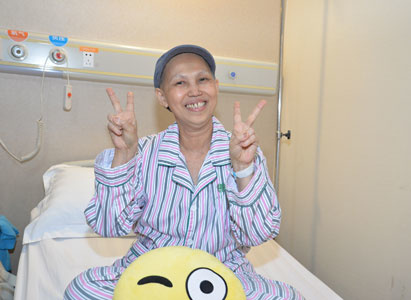 Breast Cancer
Breast Cancer- Au Guat Chin
- Malaysia
Malaysian Au Guat Chin was diagnosed with stage III breast cancer in January 2017. After interventional therapy in St. Stamford Modern Cancer...
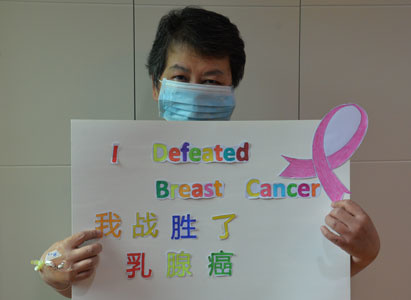 Breast Cancer
Breast Cancer- Miss Chen
- Malaysia
Due to the fear of surgery and chemoradiotherapy, Miss Chen, breast cancer stage IV patient from Malaysia underwent minimally invasive treat...
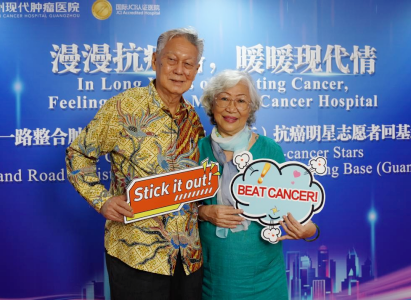 Breast Cancer
Breast Cancer- Indahwati Iwan
- Indonesia
Indahwati Iwan from Surabaya, Indonesia, was diagnosed with stage II breast cancer (malignant tumor) in 2011. After minimally invasive interv...
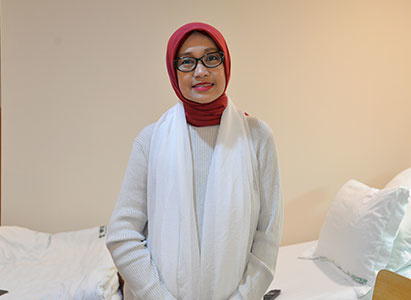 Breast Cancer
Breast Cancer- RADEN AJENG ESTIAWATI
- Indonesia
RADEN AJENG ESTIAWATI is a patient with stage IV breast cancer in Indonesia. She came to St. Stamford Modern Cancer Hospital Guangzhou for br...
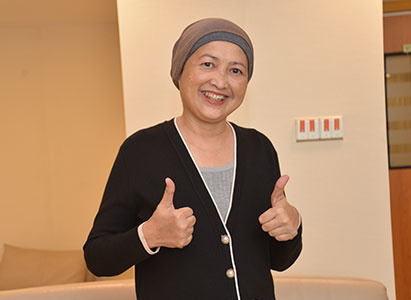 Breast Cancer
Breast Cancer- SAIDAH
- Indonesia
SAIDAH, comes from Indonesia, was diagnosed with stage IIIB breast cancer. In local hospital, she got tumor resected while the pain didn’t ...
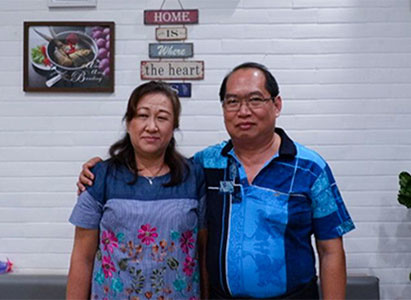 Breast Cancer
Breast Cancer- THE CARINA THERESIA
- Indonesia
CARINA, diagnosed with breast cancer, was treated with comprehensive therapy in local hospital. Afterwards the tumor came back with metastasi...
 Breast Cancer
Breast Cancer- INDAHWATI JUTIAMI
- Indonesia
INDAHWATI JUTIAMI, a breast cancer patient from Surabaya Indonesia, spoke highly of the advanced technology and high quality medical services...
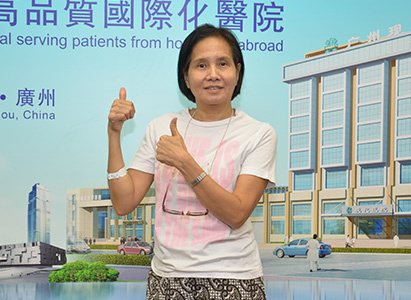 Breast Cancer
Breast Cancer- SUSANA MEILANY KOTJO
- Indonesia
SUSANA MEILANY KOTJO, 62 years old, comes from Indonesia. In 2007, being diagnosed with stage III breast cancer in local hospital, she resort...
 Breast Cancer
Breast Cancer- NG GIOK TJU
- Malaysia
NG GIOK TJU, who is a breast cancer patient from Medan, Indonesia, received interventional therapy, cryotherapy and radioactive particle impl...
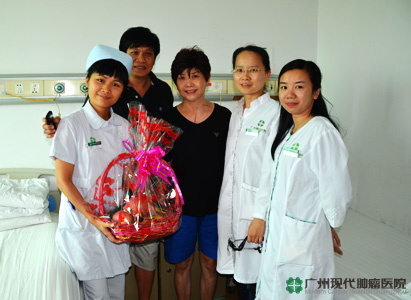 Breast Cancer
Breast Cancer- VENNY NYOTOWIJOYO
- Indoesia
Surabaya breast cancer patient VENNY NYOTOWIJOYO received comprehensive treatment in Modern Cancer Hospital Guangzhou and had the condition u...
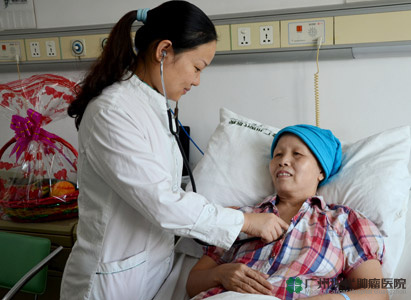 Breast Cancer
Breast Cancer- Ang Lili
- Indonesia
Indonesian breast cancer patient Ang Lili is in good recovery after undergoing interventional therapy and resection operation in Modern Cance...
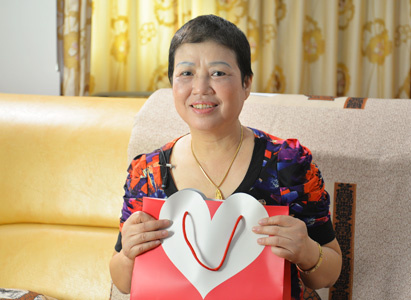 Breast Cancer
Breast Cancer- Tran Thi Diep
- Vietnam
Tran Thi Diep has eight-year’s history of breast cancer. Since the traditional treatments at local hospital didn’t work, she came to MCHG...
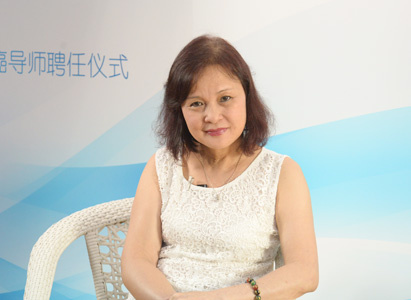 Breast Cancer
Breast Cancer- Hang Thi Cuc
- Vietnam
Hang Thi Cuc from Hanoi was once an opera actor and she wasdiagnosed with breast cancer in 2011. After the treatment in MCHG, her tumors have...
If you, your family, or your relatives are facing the trouble of invasive breast cancer, please click below immediately, fill in your information, get treatment options and a quote, and start your recovery journey!
Classification and staging of invasive breast cancer
As a type of breast cancer, the treatment of invasive breast cancer needs to be individualized according to different stages. We will introduce you in detail to this minimally invasive treatment technology for invasive breast cancer of different stages, as well as its advantages over traditional treatment.
Classify:
Invasive breast cancer can be divided into the following types according to pathological differences:
Ordinary invasive breast cancer: including solid carcinoma, adenocarcinoma, etc. Solid carcinoma is the most common type of breast cancer, accounting for about 80%, but other factors are still needed to determine the prognosis;
Special types of invasive breast cancer: include papillary carcinoma, and medullary carcinoma (with a large number of lymphocyte infiltration, etc.).
Stages:
Invasive breast cancer is usually divided into the following stages according to the degree of cancer cells invasion and the latest version of the international TNM standard staging:
Stage I From mild to severe, they’re stage IA and stage IB. The invasive breast lesions are small, there’s no metastasis or micro-metastasis to the axillary lymph nodes, and the treatment effect is good.
Stage II From mild to severe, they are stage IIA and stage IIB. The invasive breast lesions are small, there’s little metastasis to the axillary lymph nodes or the invasive lesions are slightly larger, there’s no metastasis to the axillary lymph nodes, and the treatment effect is slightly worse than stage I.
Stage III From mild to severe, they’re stage IIIA, stage IIIB, and stage IIIC. Generally, the invasive breast lesions are large, and even locally invade the breast, and there are many axillary lymph node metastases. The tumor develops to a more serious stage, and the treatment effect is worse than stage I and stage II.
Stage Ⅳ Stage IV means that there’s organ metastasis outside the breast and axillary lymph nodes. It’s advanced breast cancer, the condition is more serious than stage I-III, it’s no longer curable, the treatment effect is relatively poor, and most of them can only be maintained for a long time.
How long can a patient with breast cancer live?
Breast cancer
Five-year survival rate
about 90%
Early stage (stage I)about 85% to 70%
Mid-stage (stage IIA-IIB)about 52% to 48%
Mid-stage (stage IIIA-IIIB)about 18%
Late stage (stage IV)
Interventional Therapy X Invasive Breast Cancer
Minimally invasive treatment guided by medical imaging equipment only requires an incision of 1-2 mm, puncture under the guidance of medical imaging equipment, and special catheters, guidewires, and other precision instruments are directly introduced into the human body to diagnose the lesion, or extract its tissue and choose to carry out local treatment at the same time or electively.

- 1.Less trauma and faster recovery: Compared with traditional surgery, interventional therapy has less trauma, less pain, and shorter recovery time, allowing patients to return to normal life faster.
- 2. High accuracy and remarkable effect: Under the guidance of imaging equipment, interventional therapy can accurately reach the lesion area, carry out precise treatment, and improve the treatment effect.
- 3. Less side effects and high safety: Since the drug acts directly on tumor tissue, the toxic side effects of drugs on normal tissue during systemic chemotherapy are avoided.
- 4. Fewer side effects and high safety: For patients with early-stage breast cancer, interventional therapy can be used as an auxiliary treatment before surgery to improve the effect of surgery; for patients with advanced breast cancer, recurrent breast cancer, or metastatic breast cancer, interventional therapy can be used as an effective treatment method which can control the disease and prolong survival.
- 5. Improve the quality of life: Interventional therapy can significantly improve a patient’s life quality by reducing pain, repairing ulcers, reducing bleeding and oozing fluid, and shrinking swollen lymph nodes.
Radiofrequency Ablation X Invasive Breast Cancer
Minimally invasive treatment guided by medical imaging equipment, the multipolar needle ablation electrode is accurately inserted into the tumor site, and the radiofrequency ablation instrument conducts radiofrequency pulse energy into the tumor tissue through the multipolar needle under the control of an electronic computer, causing the tumor tissue to Generate local high temperature (80 ℃ -100 ℃), thereby achieving the purpose of coagulation and necrosis of tumor tissue and adjacent tissues that may be spread.
- 1. Minimally invasive and safe, with few complications: small trauma, less bleeding, fast recovery, and reduced risks of bleeding, infection, etc., which can greatly reduce the patient's physical burden and significantly improve the life quality after treatment.
- 2. Precise positioning: Precisely locate the tumor tissue, and use the heat generated by high-frequency electromagnetic waves to cause coagulative necrosis of tumor cells, thereby achieving effective control of local tumors, helping to improve the success rate of treatment while reducing damage to normal tissues.
- 3. Rapid recovery and remarkable treatment effect: It acts directly on tumor tissue to achieve precise treatment and significantly improve the treatment effect. For some patients with early-stage tumors, complete ablation can even be achieved, resulting in a cure, which can ensure the effective killing of tumor cells and reduce the possibility of recurrence.
- 4. Strong reproducibility: patients can receive multiple treatments to improve the success rate of treatment. This reproducibility provides patients with more treatment opportunities and increases the likelihood of cure.
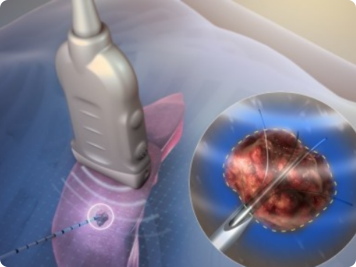
Interventional Therapy, Radiofrequency Ablation VS Traditional Treatment
St. Stamford Modern Cancer Hospital Guangzhou mainly uses the new integrated anti-cancer model of "integrated traditional Chinese and Western medicine, minimally invasive targeting" to treat cancer, such as interventional therapy, seed implantation therapy, combined knife, microwave ablation, nanoknife, cryotherapy, etc., combined with each cancer patient's specific condition and personal needs, to develop a personalized integrated minimally invasive treatment plan.
Interventional Therapy and Radiofrequency Ablation
1. No need for excision and few complications: Minimally invasive treatment can greatly preserve the intestine and enter the body through a small incision, which greatly reduces complications such as postoperative infection.
2. Small trauma, fewer side effects, fewer complications, and fast recovery: Minimally invasive treatment is a minimally invasive non-open surgery, which has less postoperative pain and quick recovery, which can greatly improve the life quality of patients.
3. High safety: less damage to the surrounding normal tissues, fewer adverse reactions, less risky, more suitable for the elderly, organ dysfunction.
4. Short treatment time: The minimally invasive treatment cycle is about one week, the recovery cycle is short, and the effect is fast, helping patients return to normal life faster.
5. Patients do not need to wait in line, and are immediately treated after admission.
6. One-on-one individual consultation to ensure the privacy and security of patients to a great extent.

- Surgical Resection:
1. Changes in body shape: Mastectomy will result in partial or complete removal of the breast, which will change the shape of the breast and may have a certain psychological impact on women's body image and self-confidence.
2. Postoperative complications: There may be a variety of complications after breast cancer resection, such as bleeding, effusion, flap necrosis, upper limb edema, etc., which will increase the patient's pain and recovery time.
3. Long recovery period: Due to the impact of surgical trauma and complications, patients may need a period of recovery, which will temporarily affect the patient's daily life and work.
4. Risk of recurrence or metastasis: Although surgical resection can remove most cancer cells, there’s still a risk of recurrence. Especially if the cancer cells have spread to the lymph nodes or other parts, the effect of the surgery may be limited.
- Radiotherapy:
1. Large side effects: Radiotherapy may cause local skin damage to the breast, accompanied by side effects such as nausea, vomiting, and oral ulcers, which greatly affect the patient's life quality.
2. Long treatment cycle: It usually takes several weeks or even months, affecting the patient's life and work.
3. Large trauma: It’s easy to damage lung tissue and cause radiation pneumonia, which may even threaten the patient's life safety in severe cases.
- Chemotherapy:
1. Serious side effects: Often accompanied by obvious side effects such as hair loss, anemia, vomiting, immunosuppression, etc., which greatly affect the life quality of patients.
2. Unstable treatment effect: Patients are prone to problems such as drug resistance and immunosuppression to chemotherapy drugs, resulting in a decrease in treatment effect, an increase in complications and in treatment difficulty.
3. Long treatment cycle: Usually 8-24 times, affecting the patient's life and work.
Click below, fill in your information, and The experts of our team will get in touch with you as soon as possible!
Integrated Minimally Invasive Treatment Techniques for Invasive Breast Cancer
When it comes to colorectal cancer, choosing the right treatment is crucial. We have 18 minimally invasive treatment techniques to protect your health. Join us now and let's fight the cancer together!
Our hospital's MDT: authoritative, professional and trustworthy
When facing the challenge of invasive breast cancer, our hospital knows that every patient desires to receive the most professional and authoritative treatment. To this end, St. Stamford Modern Cancer Hospital Guangzhou has assembled an MDT composed of top experts in the industry, dedicated to providing comprehensive and personalized diagnosis and treatment services to patients.

- Chief Expert of Oncology Department
- Chief physician,
Song Shijun, professor, chief physician, CPC member, has been engaged in clinical work of oncology for more than 40 years, and was the deputy...

- Director of International Oncology Ward
- Chief Physician
Peng Xiaochi, M.D., Ph.D. graduate in Canada, is a member of the Chinese Medical Association, the Board of Directors of the Guangdong Provi...

- Deputy director of the 5th Oncological Wards, Director of Breast Cancer Center
- Attending Doctor
Director Dai is good at combined treatment for all kinds of solid tumor (such as breast cancer, lung cancer, gastrointestinal tumor, gynecolo...

- Director of Oncology Department 1
- Associate Chief Physician
Ma Xiaoying, more than 20 years experience of clinical work in oncology, and is currently a member of the Specialized Committee on Medical...
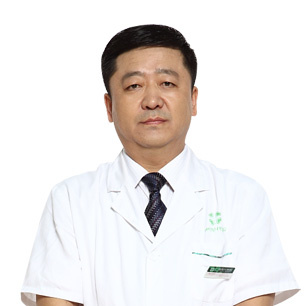
- Director of Radiotherapy and Intervention Department
- Associate Chief Physician
Graduated from Baotou Medical College with bachelor’s degree, Dr. Zhen Yanli is one of the earliest interventional experts in China. He has...
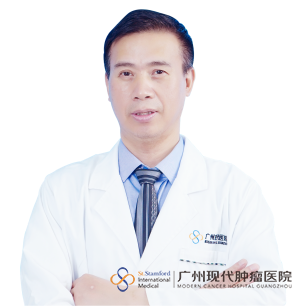
- Director
- Chief Physician
Oncologist, Chief Physician, a member of Chinese Society of Clinical Oncology (CSCO) of the Chinese Anti-Cancer Association. He graduated fro...

- Director of Minimally Invasive Center
- Chief Physician
Oncologist, chief physician, a postdoctoral researcher of Imperial College London, with a doctorate from Shanghai Medical College Fudan Unive...
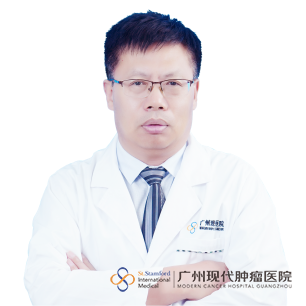
- Director
- Chief Physician
Oncologist, associate chief physician, a member of Non-invasive Therapy Special Committee of Chinese Society of Biomedical Engineering, Palli...
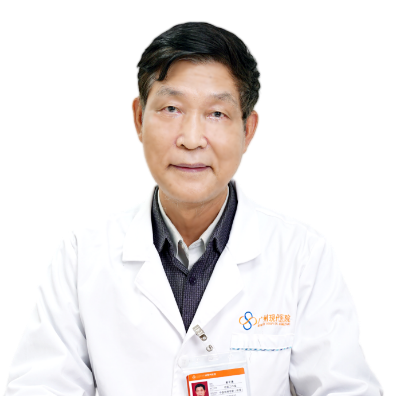
- Distinguished expert of TCM Oncology
- Chief Physician
Engaged in clinical work in Traditional Chinese Medicine Internal Medicine for 40 years and is a core member of Guangdong Province's key clin...
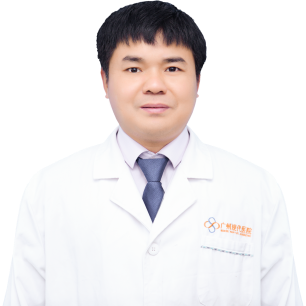
- Attending Physician, Department of Oncology
- Attending Physician
Wu Wei, engaged in clinical work of oncology for more than 10 years, graduated from the Department of Clinical Medicine of Shanxi Medical Uni...

- Attending Physician, International Oncology Ward
- Oncologist
Specializing in the diagnosis and treatment of diabetes, hypertension, cerebral infarction, coronary heart disease, gastritis, peptic ulcer, ...

- Deputy Director, International Oncology Ward
- Attending Physician
She specializes in minimally invasive targeted therapy, immunotherapy, chemotherapy, radiotherapy and endocrine therapy for solid tumors, and...
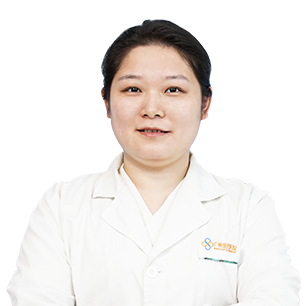
- Physician-in-Charge
- Oncologist
Ma Yumei has been engaged in the clinical work of gynecological oncology treatment for nearly 10 years. With solid clinical theoretical knowl...

- Attending Physician, Oncology 7th Floor Ward
- Attending Physician
Personal Profile:more than 10 years experience of clinical work in oncology, member of China Anti-Cancer Association, member of Guangzhou Bai...

- Resident physician, 7th floor oncology ward
- Resident physician
Accumulated rich clinical experience in the diagnosis and treatment of tumors, specializes in the diagnosis and treatment of solid tumors suc...

- Attending physician ,7th floor oncology ward
- Attending physician
Personal Profile:Many years of clinical work in oncology ,Master of Medicine Degree. specializes in radiotherapy, chemotherapy, targeted and ...

- Doctor from the 8th Oncological Wards
- Attending Doctor
Dr. Hu Ying is masterly using interventional therapy, 125I seed implantation, cryotherapy, radiofrequency ablation and other minimally invasi...

- Chief doctor of cancer center on 4th floor
- Attending Doctor
With cancer clinical experience for more than 30 years, Dr. Wu Qingkai has rich medical theoretical knowledge and clinical experience. With t...
Click below, fill in your information, and The experts of our team will get in touch with you as soon as possible!




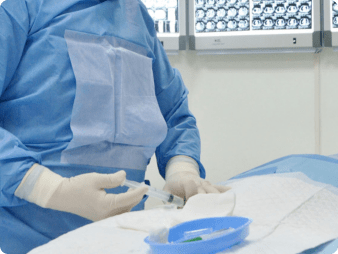
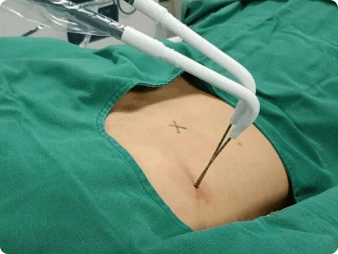
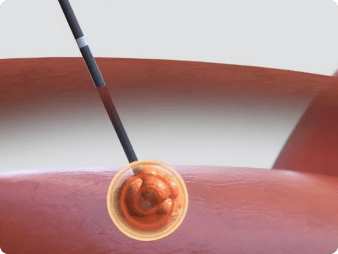


















































 viber
viber